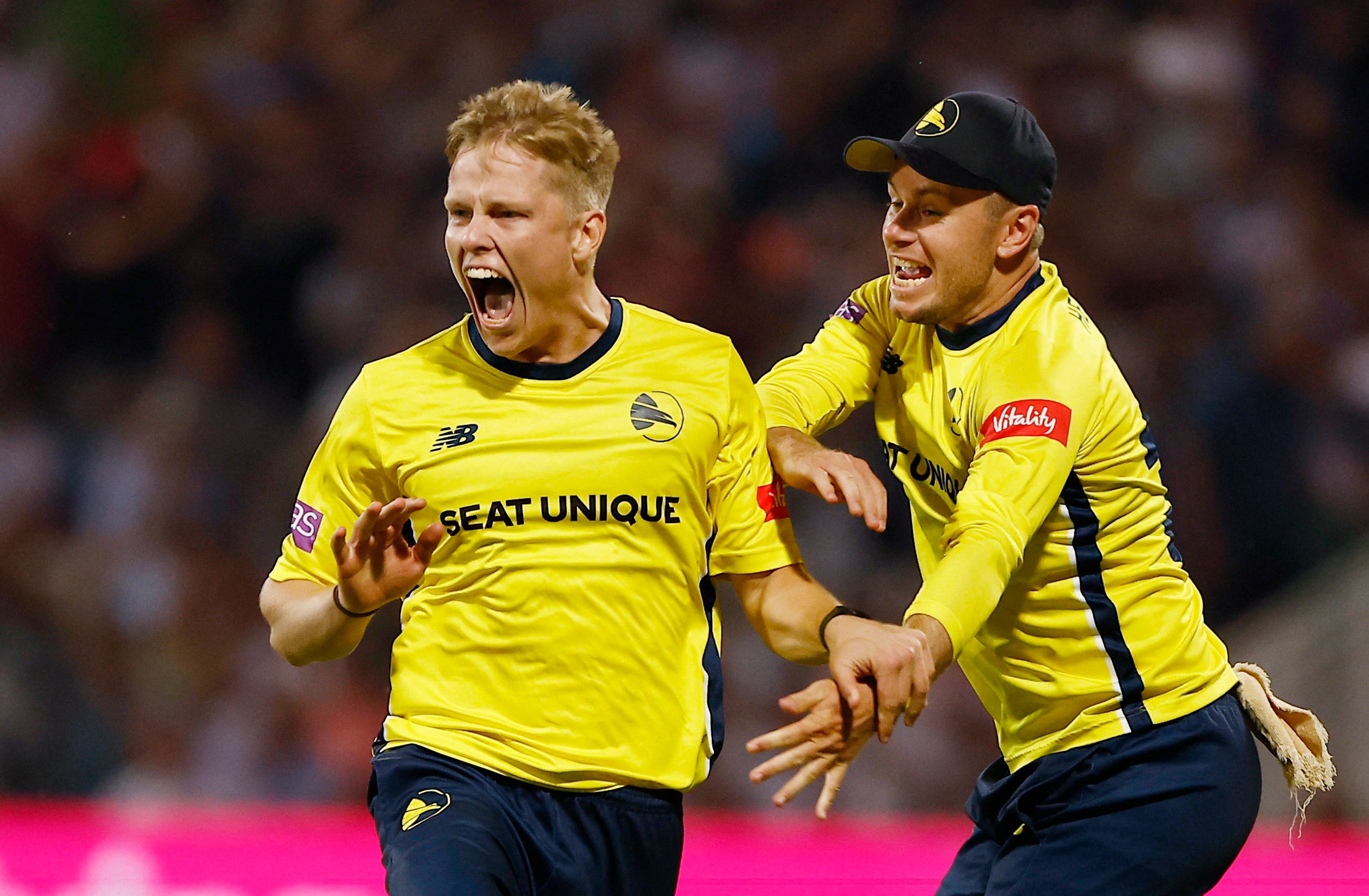MCC supports umpires’ decision over dramatic end to Vitality Blast final
Lancashire ran one bye off the final delivery but a second would have seen them crowned champions.

Your support helps us to tell the story
From reproductive rights to climate change to Big Tech, The Independent is on the ground when the story is developing. Whether it's investigating the financials of Elon Musk's pro-Trump PAC or producing our latest documentary, 'The A Word', which shines a light on the American women fighting for reproductive rights, we know how important it is to parse out the facts from the messaging.
At such a critical moment in US history, we need reporters on the ground. Your donation allows us to keep sending journalists to speak to both sides of the story.
The Independent is trusted by Americans across the entire political spectrum. And unlike many other quality news outlets, we choose not to lock Americans out of our reporting and analysis with paywalls. We believe quality journalism should be available to everyone, paid for by those who can afford it.
Your support makes all the difference.The MCC has given its backing to umpires Graham Lloyd and David Millns after a chaotic ending to Saturday’s Vitality Blast final.
Hampshire triumphed by one run over Lancashire but only after a dramatic finale which saw Nathan Ellis bowl a no-ball from what had been expected to be the last legitimate delivery of the domestic Twenty20 showpiece.
It saw Hampshire’s celebrations cut short and Ellis forced to bowl the last ball again – now trying to defend three runs – and while Lancashire were able to run one bye, umpires Lloyd and Millns deemed the ball was dead before Richard Gleeson and non-striker Tom Hartley could complete a second bye to level the scores, which would have seen their side declared champions due to their superior powerplay score.
Lancashire captain Dane Vilas questioned why the umpires deemed the ball dead, but Hampshire players had already removed the stumps at the striker’s end after wicket-keeper Ben McDermott caught Ellis’ delivery and Law 20.2 states “whether the ball is finally settled or not is a matter for the umpire alone to decide.”
An MCC statement on Sunday read: “The match was concluded when the ball was deemed to be dead by the umpire, after the batters had completed one bye from the final ball.
“The bowler’s end umpire signalled the bye to the scorers. Under Law 2.13.3, the signal for bye shall be made to the scorers only when the ball is dead. The ball was dead because, in the view of the umpire, it was finally settled in the hands of the wicketkeeper.
“Analysis of the footage of the match showed that, when the umpire signalled the bye, the original non-striker was standing still, about four yards behind the striker’s wicket, while the striker was slowing down in his attempt to reach the other end, so it was reasonable to consider that the ball was dead.
“It is not therefore relevant that the wicket was not lawfully put down at the bowler’s end. Once the umpire has made the decision that the ball is dead, that decision cannot be revoked.”
Winning captain James Vince shrugged off the remonstrations of opposite number Vilas with the umpires at Edgbaston but the MCC did use their statement to remind victorious teams to wait in the future before they begin their celebrations.
“This is not the first example of premature celebrations by the fielding side creating uncertainty at the end of close matches,” the custodians of the laws of the game added, having revealed they received “a number of queries” following the final’s conclusion.
“Teams are encouraged to ensure that all play has definitively ceased before starting any victory celebrations.”